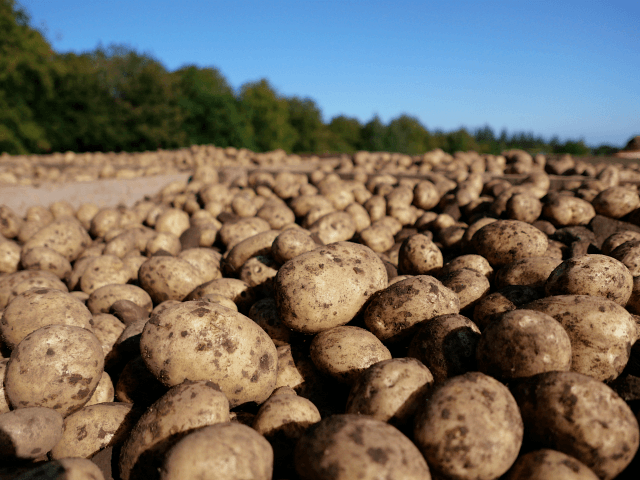Fishermen are not the only Britons who will lose out in the reportedly imminent Brexit deal, with Boris Johnson acquiescing to the bloc locking seed potato farmers out of its markets.
The Brexit deal, which both the British government and European Union have signalled will be announced on Thursday, with only some minor haggling over fisheries remaining, does not, if reports are to be believed, allow for the export of seed potatoes, which are grown not for eating but for planting elsewhere, to the EU — a major export destination for the relevant farmers, based primarily in Scotland and the North of England.
“Unfortunately the EU have confirmed they will not accept our case for a permanent change to the prohibition on seed potatoes… on the grounds that there is no agreement for GB to be dynamically aligned with EU rules,” reads a letter from the Department for the Environment, Food and Rural Affairs (DEFRA), reported by the BBC.
(“Dynamic alignment” is EU terminology for the UK continuing to transpose EU rules and regulations into British law, despite Brexit and despite the fact Britain will no longer have even a nominal say over them.)
The acceptance of the EU position on seed potatoes, obscure to the general public but potentially “devastating” for the farmers concerned, will provee especially galling in light of news that Boris Johnson appears to have failed to hold the line on his own demand for EU control over British fishing waters to end after the 2020 “transition”, with the deal reported to include a years-long further transition for EU access, with only a small proportion of British fish and fishing revenue repatriated to Britain from foreign fleets.
“There’s no dressing this up. This is bad news for Scottish seed potato exporters. One-fifth of our exports go to the EU, more than 20,000 tonnes a year,” said James Withers, chief executive of Scotland Food and Drink.
“It may be a smaller industry in a big trade deal, but tell that to the companies and farmers affected. This will feel to them about as far from a definition of free trade as is possible,” he added.
“If these reports are true, it would be a terrible negotiating failure on the part of the Tory government – and a devastating blow to an extremely valuable part of Scotland’s booming farming industry,” agreed Deidre Brock, the environment, food, and rural affair spokeswoman for the left-separatist Scottish National Party (SNP) in the House of Commons.
“It is clear that the Tories are selling Scotland’s farming and fishing industry out and planning a total betrayal of our rural communities – with a hard Brexit that will cause serious and lasting damage to exports, jobs, living standards, businesses and the economy.”
Brexit supporters who might normally have been appalled by seed potato farmers being excluded from the deal on “third country listing” for food exports — which will apply regardless of the broader trade deal — have not been especially sympathetic, however, given the notionally pro-independence SNP is fanatically loyal to the EU, and has contributed little to the discussions besides calls for Brexit to be suspended or overturned up to now.
The party has in the past acknowledged the devastating and disproportionate impact of the “dead hand of Brussels mismanagement” on British fishermen, and occasionally expressed an interest in a good outcome for them from the Brexit talks — but this has all been undercut by their commitment to renewing Scotland’s EU membership, which would necessarily entail a continuance of or return to full EU control over Scottish fishing waters per the bloc’s Common Fisheries Policy (CFP).

COMMENTS
Please let us know if you're having issues with commenting.